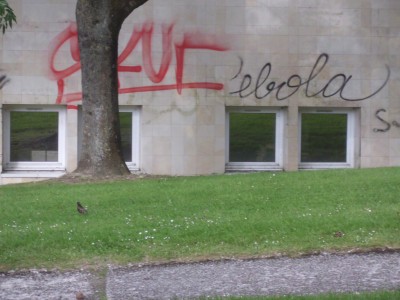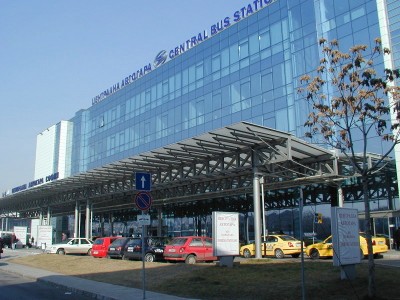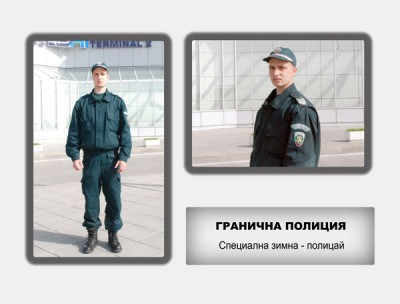The chief objection is that the employers will simply pay lower net honorariums to compensate for difference which can be as high as 35%. Another objection concerns the aspect of discrimination, i.e. de facto creation of caste society in Macedonia, as certain categories of citizens, such as elected and appointed public officials, judges, top athletes--whose status depends on the decision of ruling Party--as well as pensioners, would be exempt. Another issue is that those who'd receive even one honoraria larger than a minimal wage would not be able to register as unemployed for the following year. The changes will especially adversely affect the functioning of the nonprofit civil sector and independent media, where the employers have no sources for additional funds.
| "Is this personal enough?" Protest meme designs by MightyCreation Aleksandar Pesevski, CC BY-NC. |
Why paying additional contributions to honoraria for freelance work is unacceptable?
The Government’s intention to introduce contributions for freelance work from January 1 2015 will increase poverty unemployment. Besides, exempting state employees from this obligation which the Government imposes on the all other mortals, without any logical explanation, shows the full perversity of the concept.
Our demands are:
The Parliament adopted these legal changes under urgent procedure during the Summer holiday season in July, without any prior consultations with the relevant stakeholders. The dumfounded public had to wait until October for the authorities to offer official explanation of the many ambiguities in the new regulations to react. The Government has so far been refusing to postpone the implementation of the law, but seems to backtrack on the issue of privileged for the public officials - the relevant procedure has been quietly removed from the website of the state pension fund. Some social media users have commented that the unconstitutional and discriminatory aspect was intentionally placed as a bargaining chip.
1. Stop the implementation of the new regulations… in order to create space for their change and withdrawal.
2. Increase the work of the Labor Inspectorate and detect the actual cases of hidden employment, or the proclaimed issue of working without contracts or not paying of social security contributions…
3. Increase or abolish the highest monthly base for calculating contributions which currently amounts six average salaries.
Who will be affected by these legislative changes?
Large number of Macedonian citizens who have no opportunity for full-time employment are forced to fight for their existence working for honorariums, which most often are neither regular or large. Such freelancers are not entitled to labor rights which come with full-time registered employment. Far from privileged, they are part of the precariat, the most endangered working class. When these legislative changes come into effect, their employers will lower the honorariums in order to pay the contribution benefits requested by the state, thus causing further impoverishment. It is also possible that, with a lower bottom line, that many such people would be fired, increasing the unemployment.
All persons who are employed full-time and all people that will be employed in the future are affected by these legislative changes!
These changes:
1) Affect temporary hidden employees (journalists and others). They should have permanent (full-time) and not temporary employment contracts. But their employers, in order to make additional profit from not paying the salary contributions, annual leave, sick leave, etc. of their employees, give them the status of temporary, instead of full-time employees.
2) Affect temporary employees whose profession is freelance by nature (translators/interpreters, project staff, etc.). In most cases such as these no employer would employ them full time and they are forced to become opportunists (opportunities in most cases are little or none), forced to struggle to make a (semi)decent living, and more often than not they fail to do so.
3) Affect full-time employees who also freelance. They are employed full time, but use fees from freelance work as an additional source of income. Although they are least affected, their impoverishment should not be overlooked. Salaries for the vast majority of the population in Macedonia have become insufficient for a decent life. Having said this, the few occasions for freelance engagements for these people should not be seen as opportunities for their enrichment, but as a chance for a slightly more decent living for themselves and their families.
4) Affect all future employees and all current full-time employees. The new amendments will enable employers, having fulfilled all of their financial obligations to the state, to legally employ only temporary instead of full-time employees. It is even possible that they –again, completely legally – transform all current full-employment contracts to temporary employment contracts. Thus, by having fulfilled their financial obligations toward the state and not having it as an obstacle, they will be able to profit by exploiting the employees through not paying them annual leave, sick leave, maternity leave, mandatory annual physical examination, severance packages for persons whose employment has been terminated; as well as to deprive employees of the rights guaranteed under the Law on Labor Relations and other laws regulating employment rights.
With these amendments the government wants to overlook the biggest problem of Macedonia – and that is poverty – not the increase in the amount of money it controls! The remedy offered is worse than the disease itself! The poor and the oppressed should not be used as scapegoats and sacrificed so the government can overcome the problems with the Pension and Disability Insurance and the Health Insurance Funds it itself created!
Overall, the Government plays tough in public, especially after the massive student protests sparked hopes for changes in the stagnant society. At base level, the influx of fresh funds (expected EUR 68 million) is direly needed for the depleted health and pension funds, as the bloated state budget has to sponsor the loyalty to the ruling parties of the "army" of estimated 180 thousand state employees, in a country with about 2 million citizens.







